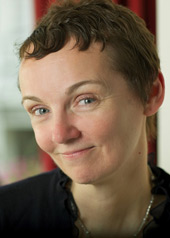The inspirational work of diabetes educators and how ancient practices are blending with modern science
 Like managing diabetes itself, the development of new diabetes therapies and technologies knows no off season. Every single week, we see approval decisions, study results, and company updates, not to mention the staging of ambitious scientific conferences. And yet somehow innovations seem especially fresh, and the outlook seems especially hopeful, in the spring. Call me a romantic.
Like managing diabetes itself, the development of new diabetes therapies and technologies knows no off season. Every single week, we see approval decisions, study results, and company updates, not to mention the staging of ambitious scientific conferences. And yet somehow innovations seem especially fresh, and the outlook seems especially hopeful, in the spring. Call me a romantic.
In this month’s New Now Next we are happy to report on progress in combination insulin/GLP-1 receptor agonist therapy, a regulatory milestone for the type 2 diabetes drug dapagliflozin in Europe, and a forum for diabetes advocates to learn about Medtronic’s plans for the artificial pancreas and other next-gen devices.
We are equally excited, though, whenever we get the chance to hear (and share) great advice for taking care of ourselves. That’s just one of the many reasons that we so love attending the American Association of Diabetes Educators (AADE) annual meeting. Each summer at AADE we learn many practical tips, we see the care and expertise of thousands of educators from around the country, we are reminded of the crucial role they play for any person with diabetes, and we get to join with everyone in honoring the best of the best – like the beloved Dr. Diana Guthrie, last year’s recipient of the AADE Living Legend Award. This year’s AADE takes place August 1-4 and we absolutely can’t wait. After last year’s meeting, we studied the work of Dr. Guthrie, and are now thrilled that we’ve got a full interview to share with you.
Dr. Guthrie has been treating diabetes for 55 (!) years, and as far as we can tell she’s never stopped learning new approaches. As she discusses in this month’s diaTribe dialogue, she believes in the timeless power of holistic healing – deep breathing, meditation, herbal remedies, etc. But she also believes in coupling these techniques with the best of modern science (for example, with “biofeedback-enhanced relaxation”). Dr. Guthrie explains that massages and stress management don’t just make people feel better, they can lower blood sugar to boot – a great tip that has gotten us thinking more about self-care (and made us feel even better about an occasional trip to the spa). I’ve taken her advice so to heart that I’ve enrolled in a meditation class right here in San Francisco at UCSF – I’ll be back later on how this works out.
So whether you’re trying out Dr. Guthrie’s tips for relaxation, taking advantage of the latest advances in medications and technology, attending online classes at Type 1 University, or meeting friends at diabetes camps, we hope that this spring brings you new starts, lively learning, and at least one shoulder rub.
Happy May Day, and have a wondrous end of spring…
Very best,

Kelly L. Close







